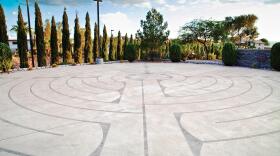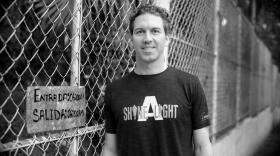“If you can adopt a highway, why can’t you adopt a teacher?” Good question. It’s the question retired carpenter Dan Kowal put to his wife Joyce one evening. They were watching a TV news story on how much teachers pay out of their own pockets to equip students in their classrooms. The answer to that question inspired a desire to adopt — not teachers, but entire schools. The Kowals are no strangers to adoption. Forty years ago, as young newlyweds in Crown Point, Ind., they took the state to court to win the right to adopt their 1-year-old foster son, Joseph. (At the time, Indiana prohibited foster parents from adopting foster children.) Later, the Kowals moved to Las Vegas, where they continued the tradition as their home became a safe haven for troubled teens. “We would bring in these kids that didn’t have a place to stay or food to eat,” says Dan. Adds Joyce: “Friends. Then friends of friends. Then friends of friends of friends.” From kids to … schools? Dan first began helping in schools decades ago, when their daughter Julie Anne was working in the kitchen at Las Vegas Academy. Dan was a cabinet-maker for The Mirage when he convinced the hotel-casino to donate their old kitchenware — dishes, pots, pans, and silverware — to the school. “They sent truckloads!” he says. They eventually found an official channel for their instinct to adopt: The Clark County School District’s School-Community Partnership Program. The program ( ccsd.net) includes the Support a School project, which publishes online lists of supplies and equipment particular schools need. The Kowals have since adopted two schools with their Shadow Hills neighbors: Doris French Elementary and Helen C. Cannon Middle School. What does adoption mean? Helping out schools with much-needed supplies, from paper and pencils to glue and scissors, sure. But it also means a bit of hands-on help as well. For instance, in addition to soliciting donations, Dan builds step stools for kindergartners; Joyce is planning a garage sale to raise money toward field trips. But ultimately, they hope to inspire. They’re hoping to convince other subdivisions to adopt schools in their neighborhoods. “What goes around comes around,” says Joyce, pointing to the ripple effect good schools have on the community, the economy and more. As for the time, effort, and even money this is costing them in their twilight years, Dan shrugs. “You gotta do it.”
Profile: An attitude to adopt; Dan and Joyce Kowal









